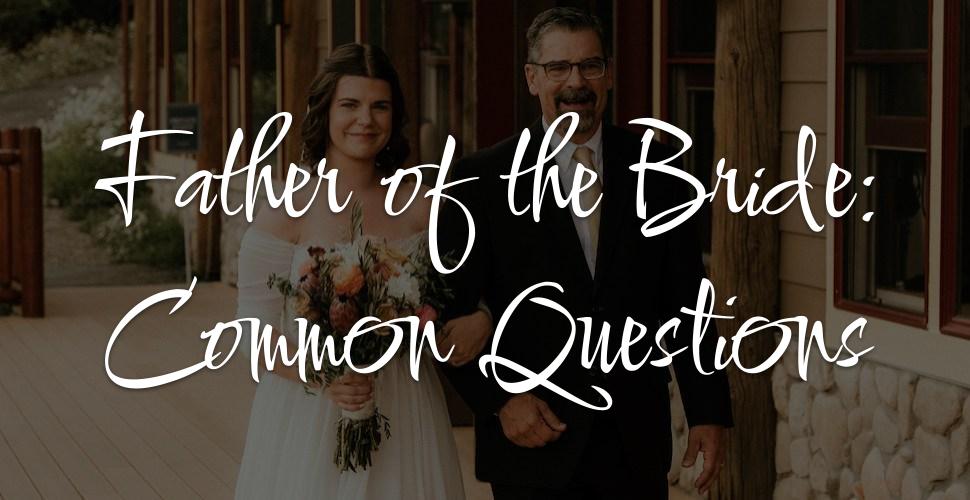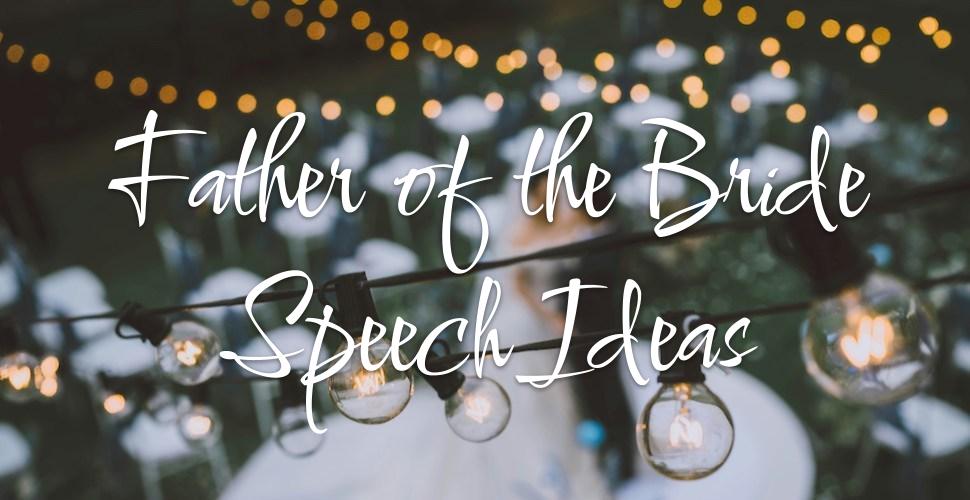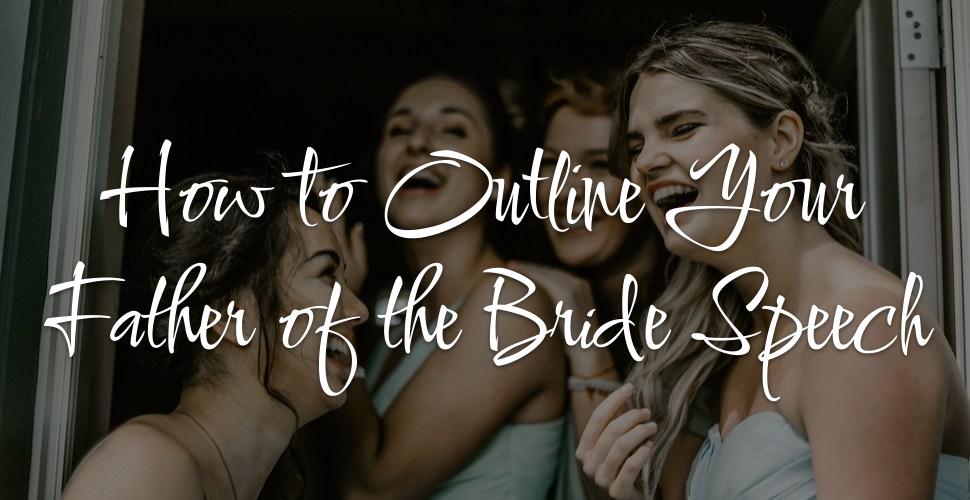Father of the Bride Speech: Common Questions

When does the Father of the Bride speak?
The traditional order of the wedding speakers is as follows:
- Father of the Bride (that’s you!)
- Groom
- Best man
However, in reality this order is just a convention. These days other members of the wedding party may feature in the list of speakers, for instance: Maid of Honour, Mother of the Bride, Father of the Groom, etc. These more contemporary roles may replace traditional roles or be in addition to the traditional line-up.
Whatever the case, the most important thing for you to do is to confirm exactly who’s speaking at your daughter’s wedding and where your speech fits into the overall itinerary.
What should the Father of the Bride speech include?
There are no hard and fast rules, but there are certain things the Father of the Bride speech will traditionally cover.
- As the first speaker, it’s the Father of the Bride’s job to officially welcome the guests.
- He will usually mention any absent or deceased family or friends.
- His other official duty is to raise the first toast to the Bride and Groom.
Who does the Father of the Bride thank in his speech?
Traditionally, the Father of the Bride thanks:
- the guests for coming to the wedding
- his wife or partner for their support and any help with the wedding preparations
- the Groom’s parents for their help and hospitality in the run-up to the speech
In general, the Father of the Bride should keep his thanks to a minimum beyond these three points. It’s the Groom’s job to do the bulk of the thank yous.
How long should the Father of the Bride speech be?
The Father of the Bride speech shouldn’t be more than ten minutes long with 6 to 8 minutes being the sweet spot. (For the average speaker that’s around 900 to 1,200 words.)
That’s because however confident or accomplished you are as a speaker, it’s important to remember that you’re essentially a warm up act for the other speakers.
An overlong speech risks stealing the thunder of the Groom and Best Man and making you look self-indulgent.
Does the Father of the Bride have to give a speech?
There are lots of reasons the Father of the Bride may choose not to speak or be unable to speak.
If that’s the case, the important thing is to make sure that someone else covers the basic duties of the Father of the Bride speech.
That can be done by the Mother of the Bride or a friend of the family.
How can you avoid getting too emotional?
Even if you’re not a particularly emotional person most of the time, you may be surprised by the strength of the feelings evoked by your daughter getting married.
So if you’re worried about your emotions getting the better of you on the big day, here are a few things you can do to help keep them in check:
- Take a deep breath. If you feel your emotions starting to rise, stop and take a deep breath. That can often help to settle your feelings again.
- Acknowledge your feelings. Sometimes trying too hard to hide your emotions can make things worse. There’s nothing wrong with acknowledging your emotions when they arise, e.g., by saying “I knew I wouldn’t be able to get through this bit without blubbing.”
- Write around the problem. If there’s a part of your speech that you know is likely to trigger strong emotions, try rewriting it.
If unwanted tears are a worry for you, the Speak & Conquer website has an article full of tips on the subject.


